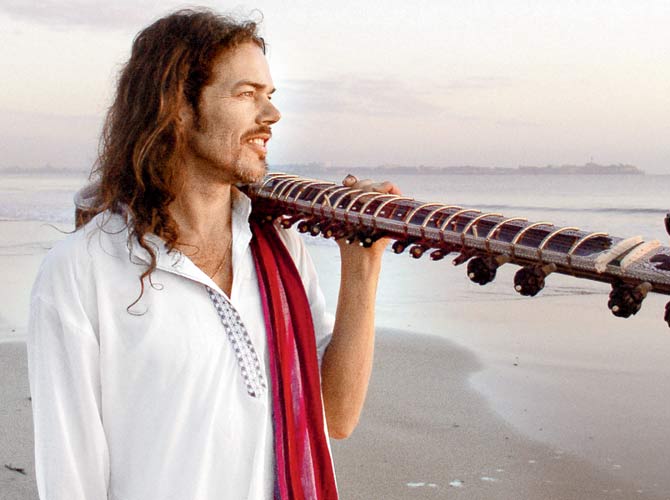10 March,2018 10:53 AM IST | Mumbai | Shunashir Sen


Prem Joshua burst into the scene in the '90s with multi-instrument albums that were textured with traditional Indian sounds, such as that of the flute and sitar. This has led to the German national being labelled as a "crossover artiste". But what does the term mean? And what is it about this country that keeps pulling him back here? These are some of the questions we asked him over email, ahead of his gig at a SoBo venue. Excerpts:
Does compartmentalising music into different genres - like rock, fusion or jazz - detract from, or add to, a person's listening experience?
For the sake of distinction, we need to give names to different genres of music, the same way we need to give different names to people. But these names have nothing to do with a person's listening experience. Especially in the field of crossover music, giving labels will be very difficult - you just need open and fresh ears, and no prejudices. In my music, you will find many different influences, from Indian classical and folk, to reggae, jazz, funk and electronica. The terms "crossover" or "world fusion" describe it only vaguely.
ALSO READ
What are three great and three not-so-great things about India that you have experienced over the years?
Very good question! I have been coming to and living in India for more than 40 years now. There must be some very strong and distinct reasons for someone who was born in Germany to decide to spend most of his life in India. I have asked myself many times - what is this inexplicable love I feel for India? It cannot be the sheer unbearable indifference, the pollution and the overpopulation (I have now already mentioned the three most negative things). There is an India that is not just a geographical entity. I call it the "inner India". Down the centuries, India has dedicated herself to discovering and developing the non-materialistic qualities of life like no other country has. There is an incredible source of wisdom here. It is the India of the great masters. You can feel this vibe in the ancient music and dance, or even in the humbleness of simple peasants. But modern India is now very busy losing all this wisdom and imitating materialistic societies.
You once said in an interview in 2010, "The days of nations are over." Given the state of geo-politics right now, how much do you still stand by that statement and why?
Nothing has changed, the days of nations are over. They have to be over! To save this world, we cannot continue acting like idiots: MY country, MY conditioning, MY culture, MY religion. This stupidity only creates wars. Wake up, this is OUR world. So let's make it a better world. But it seems as if even bigger nationalistic idiots have come to power and the world has fallen back to the Middle Ages.
Touching bass
The name Ranjit Barot would be familiar to most people who follow music in Mumbai. But not too many people might have heard of Ãtienne M'Bappé, someone who Barot shares an extremely close musical bond with. We ask M'Bappé how he first met Barot. The bassist tells us, "It was at the Frankfurt Music Fair. Ranjit was there with the great bass player, Jonas Hellborg. We would talk over the years about playing with each other, but it only happened after we both joined John McLaughlin and the Fourth Dimension." Once that musical relationship started, however, there has been no looking back. And evidence of that will be at hand on Sunday, when the two come together for a gig.
Catch up on all the latest Mumbai news, crime news, current affairs, and also a complete guide on Mumbai from food to things to do and events across the city here. Also download the new mid-day Android and iOS apps to get latest updates